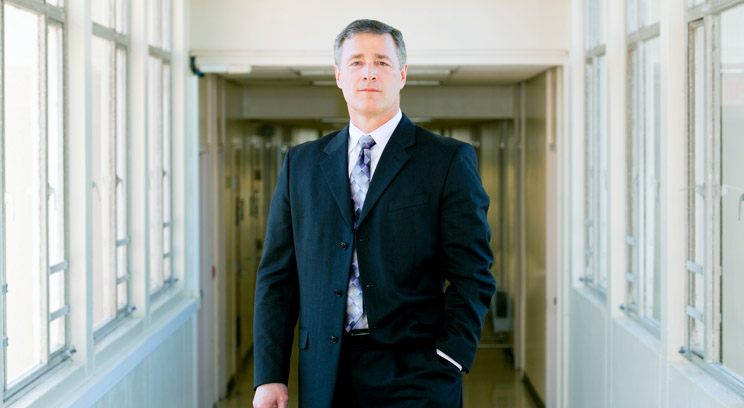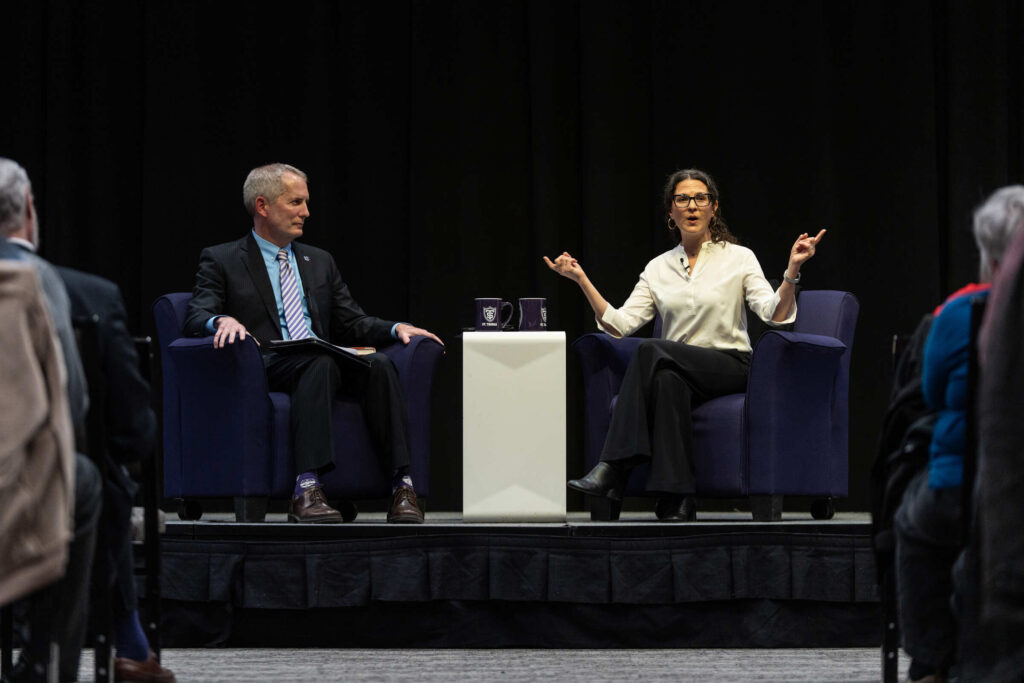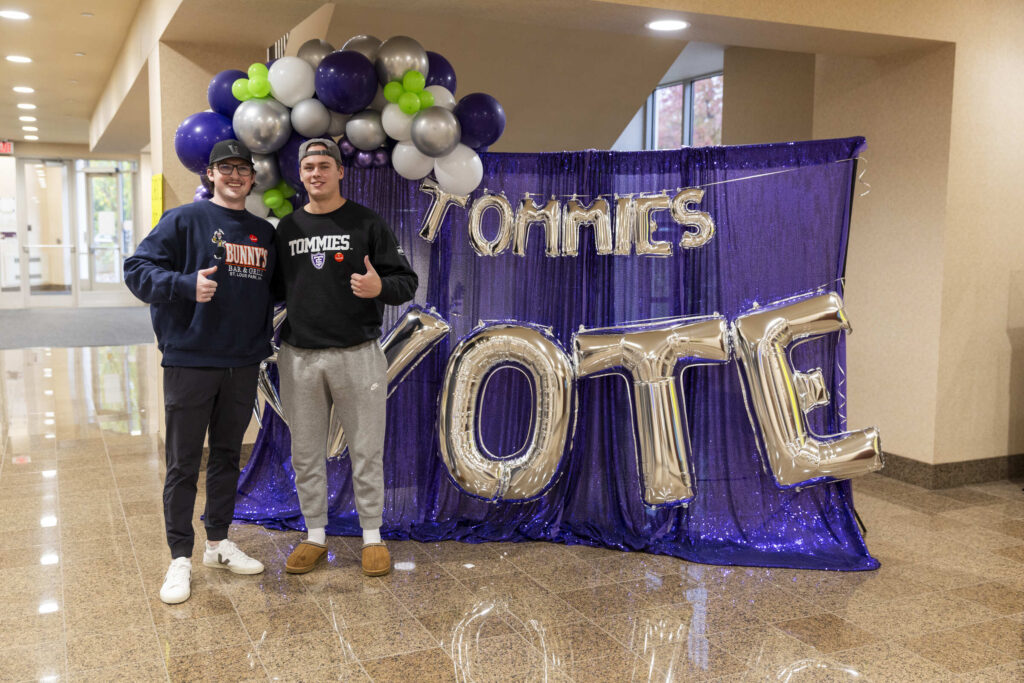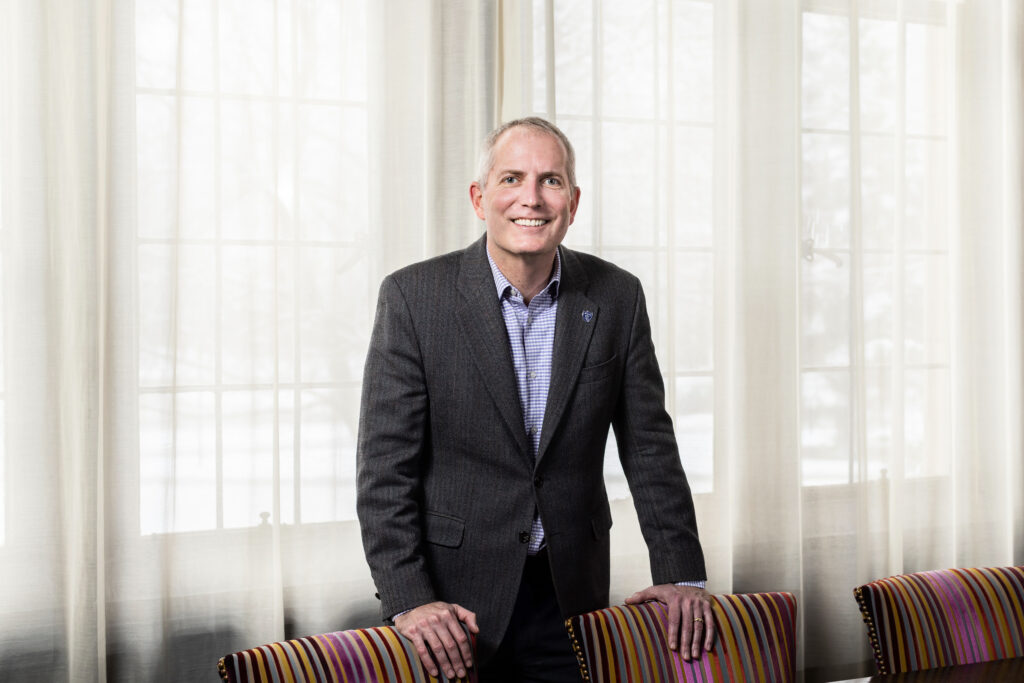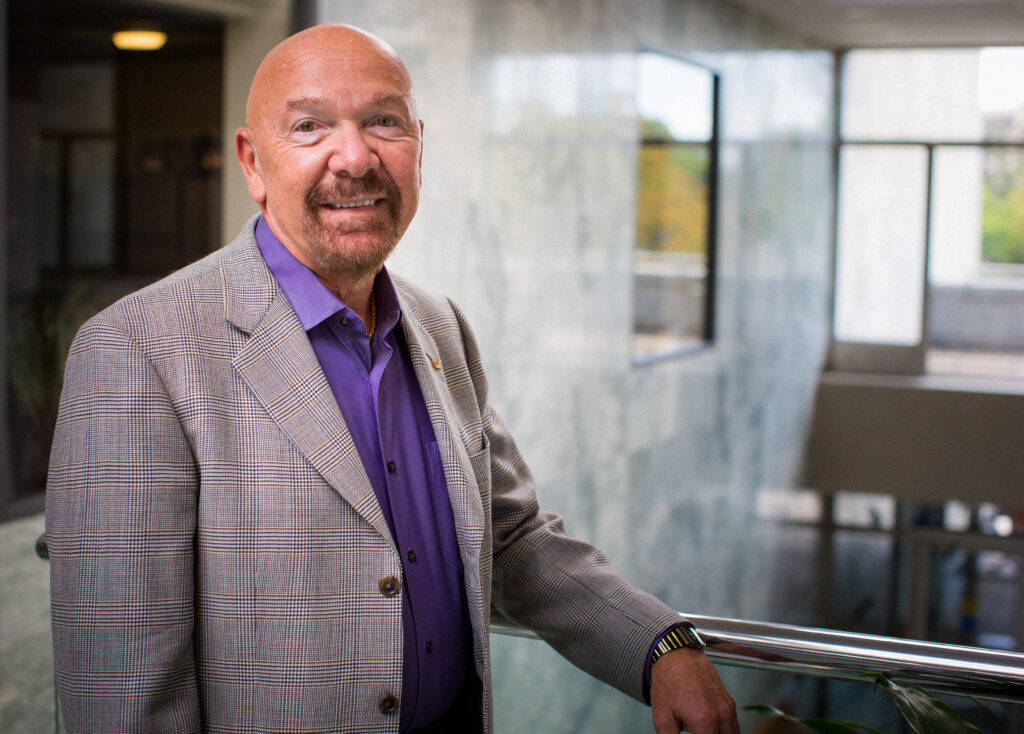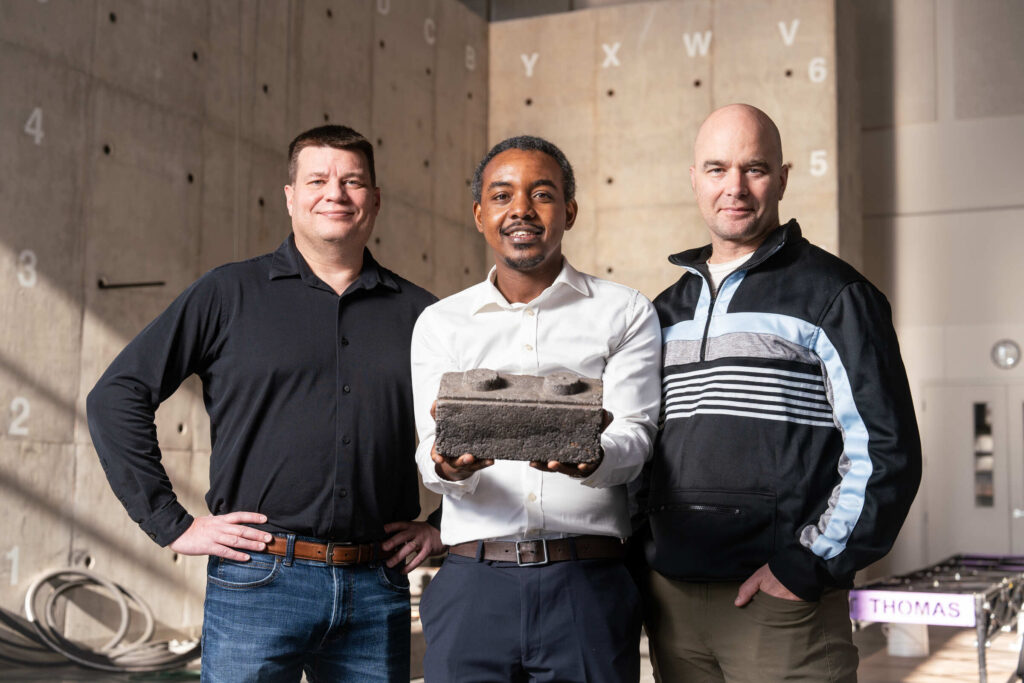Dr. Richard Plumb, dean of the Seaver College of Science and Engineering at Loyola Marymount University in Los Angeles, will become executive vice president and provost at the University of St. Thomas on July 15.
Plumb will succeed Dr. Susan Huber, who will retire on June 30. He was chosen from a field of 40 applicants, including two finalists who met earlier this semester with faculty, staff, students and members of the Board of Trustees.
“Richard is a bright, energetic and seasoned dean who is ready for a new challenge,” President Julie Sullivan said. “I am impressed by his analytical skills and his resourcefulness. He is well prepared when he looks at issues, and he is a good problem solver. Just as importantly, he listens, involves others and is very student-centered. He will be a great fit at St. Thomas.”
Plumb, 54, said he is thrilled about his appointment to the No. 2 position at St. Thomas and is eager to move to St. Paul to begin what he called “a remarkable opportunity.”
“St. Thomas has an incredibly strong reputation,” he said. “My life views align closely with the mission of the university. St. Thomas has a compelling mission statement, and I could not have asked for more than to work with a dynamic new president and coming off the conclusion of a very successful capital campaign.”
Plumb also looks forward to applying at a broader level the skills that he learned as an electrical engineering professor and researcher for 18 years and as dean of science and engineering at Loyola Marymount since 2005.
“As a dean, you primarily work on issues that impact your school or college,” he said. “As provost, you get to take it up a notch and work with the entire community on major issues that impact the entire university. That will be rewarding.”
Born, educated in Syracuse
Plumb, a first-generation college graduate, is a native of Syracuse, N.Y., and earned bachelor’s, master’s and doctoral degrees in electrical engineering from Syracuse University. But until his senior year in high school, he wasn’t sure what he might study in college.
“I took an aptitude survey, where they recorded my top five matches in terms of a career,” he said. “Four of the five were in engineering and the fifth was the priesthood. I had been dating my future wife for four years and we were pretty serious at the time, so I decided on engineering.”
He decided to focus on numerical electromagnetics because he believed the field would challenge him intellectually and had widespread, practical applications. He chose to pursue his graduate degrees at Syracuse because one of the world’s foremost experts in the discipline (Roger Harrington) taught there.
During graduate school, Plumb worked as a program engineer in the Military Electronics Systems Operation at General Electric. He was an assistant visiting professor at Syracuse for a year before moving to the University of Kansas in 1989 as an assistant professor in the Department of Electrical and Computer Engineering. He was promoted to associate professor in 1994 and served as acting director of the Radar Systems and Remote Sensing Laboratory at Kansas in 1997-1998.
Plumb became a noted researcher on electromagnetics and ground-penetrating radar. Over an 11-year period from 1992 to 2003, he received $1.7 million for 13 sponsored research projects as a principal investigator and $3 million for seven projects as a co-investigator, with most of the funds coming from corporations or government agencies.
“My research focused on designing and developing ground-penetrating radar systems and post-processing algorithms to generate 3-D subsurface images,” he said. “It was like taking CAT scans of the ground. There were dual uses – with the military, we looked for unexploded, subsurface explosives and land mines, and on the civilian side we would try to detect things like leaks from underground storage tanks.”
In 1998, Plumb became professor and chair of the Department of Electrical and Computer Engineering at the State University of New York at Binghamton. Seven years later, Loyola Marymount appointed him dean of sciences and engineering.
Seaver has eight academic departments – Biology, Chemistry and Biochemistry, Civil Engineering and Environmental Science, Electrical Engineering and Computer Science, Health and Human Sciences, Mathematics, Mechanical Engineering, and Physics. There are 85 full-time faculty, 30 professional staff, 1,100 undergraduate majors and 850 graduate students.
During his tenure, Plumb has developed and carried out the college’s first strategic plan and worked with the liberal arts and business colleges at Loyola Marymount to create joint academic programs. He also helped to raise $70 million toward a new $80 million life sciences building, which will open in the summer of 2015.
“Richard has been very successful in building relationships and driving projects at Loyola Marymount,” Sullivan said. “The new science building is an excellent example of that.”
Plumb said he enjoys reaching across academic disciplines to collaborate with colleagues in the humanities, social sciences, education and business.
“I have been a strong advocate for my college, but I also work closely with other deans,” he said. “I have learned about their schools and their cultures. I enjoy bringing people together to achieve a common vision in how to move forward, and then empowering them by giving them the responsibility to do their jobs and not micromanaging them.
St. Thomas, Marymount face similar challenges
Plumb said he had a good feeling about the St. Thomas position from the day he applied, and the feeling was confirmed five minutes into the first interview with the search committee.
“Honestly – five minutes! – and it was because of the people,” he said. “I felt I was able to relate well to those who were on the search committee, and as soon as I got on campus, I knew this was the school for me.”
He also knows he will have a learning curve because “each university has its own culture.” He plans to find out more about St. Thomas’ culture by doing one thing: listening.
“I want to meet as many people as I can as quickly as I can,” he said. “I’ll ask them why they came to St. Thomas, why they stay and what makes them excited to come to work every day. It’s incredibly important to understand everyone’s view.”
St. Thomas and Loyola Marymount are like many Catholic universities in that they are heavily dependent on tuition revenue, Plumb said. He pledged to work earnestly to identify ways to have a St. Thomas education remain accessible and affordable.
“It’s one of the biggest challenges we will face,” he said, “but it’s not unique to St. Thomas. It’s a national issue. We will look at ways we can generate additional revenues consistent with the mission of the university while easing burdens on students and families.
“I wish I had the silver bullet. The encouraging news is that St. Thomas is in good shape, coming off a very successful capital campaign ($515 million raised during Opening Doors) with a great set of donors and alumni.”
Plumb appreciates one particular commonality – Catholic mission – between St. Thomas and Loyola Marymount, a Jesuit institution.
As he writes on a Loyola Marymount website: “Our curriculum educates engineers and scientists in the latest technologies and schools them in the oldest human truths. … We take no shortcuts in our curriculum; the hands-on experience in our classes and labs produces top-notch engineers and scientists. But more than 400 years of Jesuit education has taught us that the best graduates are ethically minded and morally courageous people.”
And as he says about St. Thomas: “I love your mission statement – that you educate morally responsible leaders to advance the common good. I want to be part of that experience.”
Plumb and his wife, Mary, have been married 31 years, and she is parent program coordinator at Loyola Marymount. They have three children. Matthew is finishing his Ph.D. in molecular and cell biology at Ohio State University, and he and his wife are expecting their first child (and his parents’ first grandchild). Lauren is a bilingual teacher in Germany, with bachelor’s and master’s degrees from Loyola Marymount. Sean is a senior vocal major at the Curtis Institute of Music in Philadelphia and will pursue an opera career.
Sullivan thanks search committee
Sullivan thanked the 15-person search committee that recommended Plumb for the position. She served as chair and Dr. Susan Alexander, executive adviser to the president, staffed the committee and was an ex officio member. Other members were:
Dean: Dr. Terence Langan, College of Arts and Sciences.
Faculty: Dr. Thomas Connery, communication and journalism; Dr. Catherine Cory, theology; Dr. Kendra Garrett, social work; Dr. Kenneth Goodpaster, business ethics; Neil Hamilton, law; Dr. Thomas Hickson, geology; Dr. Ameeta Jaiswal-Dale, finance; and Dr. Robert Riley, economics.
Staff: Joe Herrera, Enrollment Services, and Karen Lange, Dean of Students Office.
Students: Ty Jesinoski, graduate student, and Jenna Johnson, Undergraduate Student Government president
